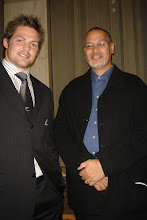This still required a large investment in the ship and crew so they were replaced by Shore Whalers who lived onshore and mixed with Maori as employers, traders and as members of the local tribes. Dicky Barrett and Jacky Love are examples of this.
As we move into the 1820’s the great whales began to run out. Increasingly it became difficult to justify the economics of running a large ship and crew for long periods at sea.
Entrepreneurs in Sydney identified a cheaper method. It was easier and cheaper to keep a small crew often supplemented by local natives at a shore base close to the whale’s migratory paths (Just like Bay Whalers but cheaper).
The stations were established in the Bay of Plenty, along the east coast of both the North and South Islands. Some were temporary some were not. They were often there for long periods. The last of the Cook Strait Stations did not close until 1964.
 Whaling Stations like Thoms, Barrets, the Guards, the Wellers or Jillets were set up in places like Kapiti or Porirua waiting for the ‘Right’ Whales to pass by. Whales were sighted, chased, harpooned, flensed and boiled down to oil. Every so often a ship would be dispatched to collect the oil from the stations.
Whaling Stations like Thoms, Barrets, the Guards, the Wellers or Jillets were set up in places like Kapiti or Porirua waiting for the ‘Right’ Whales to pass by. Whales were sighted, chased, harpooned, flensed and boiled down to oil. Every so often a ship would be dispatched to collect the oil from the stations.Life on these stations was rough and ready. (Yes I know I used the same term for the sealers, and I’ll probably use it again.). Many more cultured observers ( Edward Wakefield included) mentioned how dreadful their conditions were as was the culture of drinking and cursing.
One thing that made them different was the way that they assimilated into local Maori society. Their presence was important to Maori, it gave them the same access to European goods that was enjoyed by Nga Puhi, thus having a Pakeha set up close to you was essential. Having a Pakeha made you “safe” and would encourage others to call by, increasing trade opportunities.
 Many Europeans took (usually, but not always temporary) Maori wives and left behind numbers of half-caste children who were absorbed back into their Whanau. Maori did not view the children as anything other than Maori and they assimilated more easily into Maori society while they would have been vilified if returned to Pakeha society.
Many Europeans took (usually, but not always temporary) Maori wives and left behind numbers of half-caste children who were absorbed back into their Whanau. Maori did not view the children as anything other than Maori and they assimilated more easily into Maori society while they would have been vilified if returned to Pakeha society.The Stations acted as a new conduit for Europe into New Zealand. They allowed more Maori from more extensive areas of the country. More Maori met Europeans, their goods and their culture. It opened more of New Zealand to exploration and exploitation.
Some of these Whalers became so entwined in their Tribes that they helped defend them against attacking Taua (War Parties) or even migrated with them when attacks drove them from their traditional lands. Some became so embedded that their names are now a well known and valued part of the Iwi.
Whalers like Johnny Jones (Southland) established small empires in the areas they lived in.
Archaeologists have found the sites of over 80 whaling stations. The impact of the Shore Whalers should not be underestimated.









